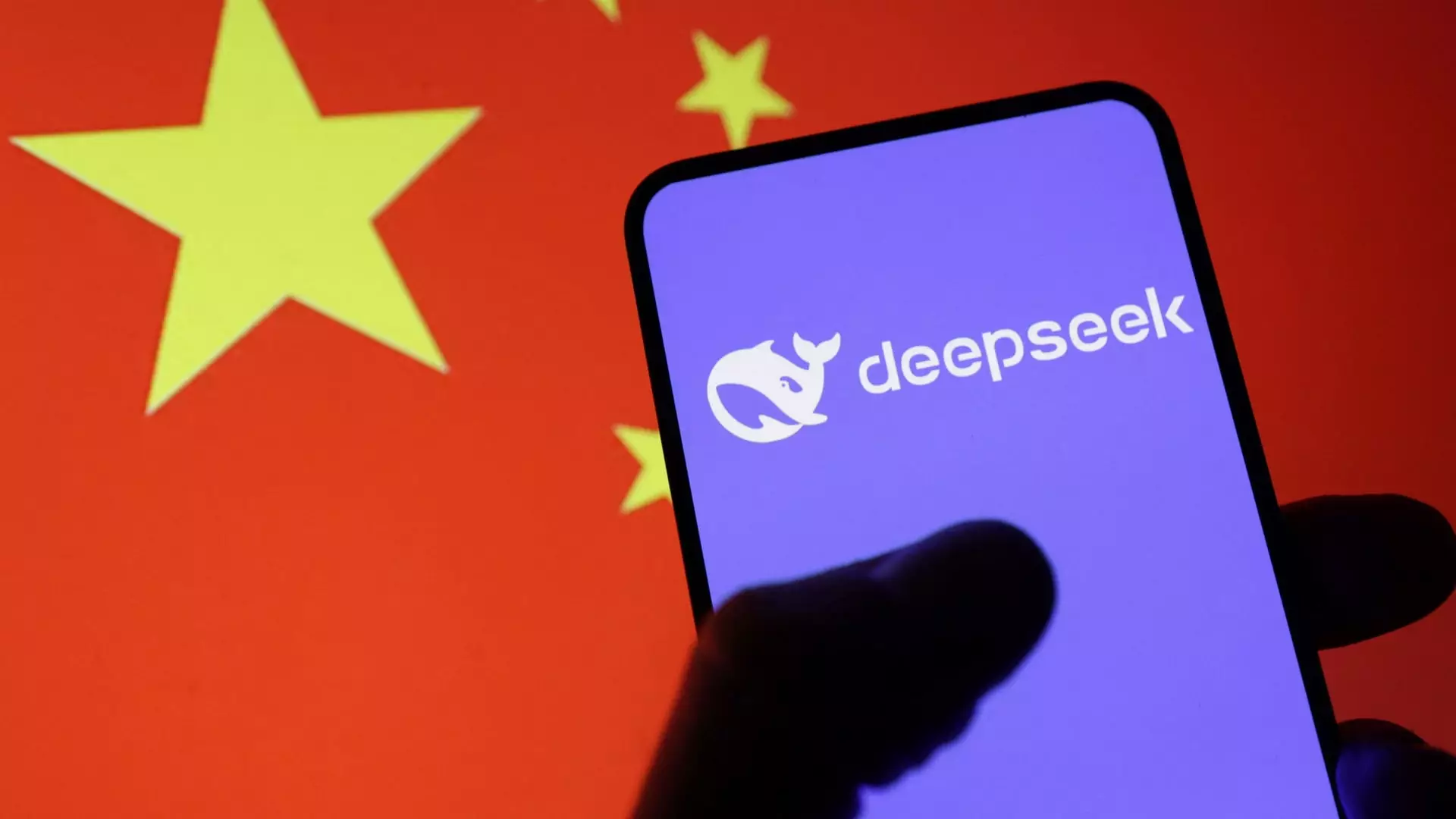In a compelling demonstration of ambition, Chinese tech firms are racing headlong into the artificial intelligence (AI) arena, fueled by Beijing’s renewed call to embrace and support technological innovation. The sheer determination of these companies, particularly smaller startups, signals a crucial pivot point in the AI landscape. The week culminated in an announcement from the obscure startup Monica, which unveiled Manus—an invite-only AI app designed to optimize the assessment of resumes and financial data with a blend of models from industry giants like OpenAI and Anthropic. While some analysts, including Bing Duan of Nomura, argue that Manus may not reach the innovation heights of competing products like DeepSeek, its launch is symptomatic of a significant shift toward enhanced AI capabilities in China.
The rapid iteration of AI technologies also showcases a unique aspect of China’s approach to tech competition. With growing pressure from international tariffs and an economy displaying signs of strain, the government’s commitment to fostering a robust AI ecosystem serves as a lifeline for many companies. This context underscores a crucial insight: innovation in China is being catalyzed not merely by a desire to compete, but as a direct response to external pressures.
Impact of Government Policies
As we witness this tech-centric awakening, it is pertinent to note the strategic interventions by the Chinese government. Recently, there have been increases in deficits alongside increased subsidies aimed at incentivizing consumer trade-ins and facilitating financing for tech enterprises. This embrace of AI-centric policies hints at a deliberate strategy to bolster the private sector—a critical element in rejuvenating China’s economy.
Nicholas Yeo from abrdn aptly encapsulates this sentiment, suggesting that the encouragement of technological advancements amidst a backdrop of cheap valuations in the internet sector presents a fertile ground for investment. Such optimism denotes not just a fleeting moment of exhilaration but indicates that Beijing is making a forthright effort to shore up its tech infrastructure, transcending pre-existing limitations. This contextual understanding of government policy offers an insightful lens through which to gauge the emerging AI landscape in China.
The Divergence of Market Performance
Analyzing stock performance reveals an intriguing contrast between Hong Kong and mainland Chinese markets. The Hang Seng Index surged by 5.6% in the last week, hitting a three-year high—largely attributed to robust performances from tech titans like Alibaba. In stark contrast, the mainland CSI 300 index faced a dip of approximately 1.4%. This divergence implies that as Chinese tech companies shift toward AI, they are creating an accelerated pathway for financial performance distinct from traditional market trends.
The significant boost in Alibaba’s market position, aided by a new reasoning model that matches DeepSeek’s capabilities, indicates how competitive tensions fuel innovation. Tencent, not to be outdone, launched its new AI iteration, Turbo S, which purportedly surpasses various measures of its competitors. Such advancements beg the question of whether existing benchmarks will hold as the lines between competition and collaboration blur in the race for AI supremacy.
The Role of Major Players
The increased activity from heavyweights like Tencent and Alibaba is catalyzing not just their growth, but also inspiring smaller players and driving innovation across the board. As Tencent incorporates DeepSeek technology across its digital ecosystems, this not only exemplifies its capacity to implement AI solutions but also sets a new standard for what it means to thrive in a collaborative yet fiercely competitive environment. Bernstein analysts contend that Tencent’s strategic moves in AI position it as the top player in China’s burgeoning AI market.
This focus on dynamic implementation heralds a new era where the speed of innovation is as crucial as the technology itself. As these companies galvanize their teams and push for rapid advancements, the entire tech sector in China stands to benefit, marking a transformative moment in their approach toward sustained technological leadership.
Looking Ahead: The Potential for Broader Economic Uplift
As China’s leading tech firms seize the initiative in AI, the implications for the broader economy are profound. Strategies that link AI advancements to enhanced consumer engagement through targeted advertising and better service delivery have the potential to generate an economic uplift that extends beyond the digital realm.
If the current momentum translates into tangible economic results, we may see a renaissance in the A-shares market as well, leading to a more balanced growth trajectory across sectors. The intertwining of technological innovation, government policy evolution, and corporate ambition hints at a strategically cohesive plan—a formula that could reinvigorate China’s economy during challenging times.
In this thrilling interplay of strategy, competition, and innovation, one cannot help but feel that China’s AI revolution is just beginning to unfold. Observers should remain acutely aware of how these developments unfold, as they signify one of the most compelling narratives in global tech today.

